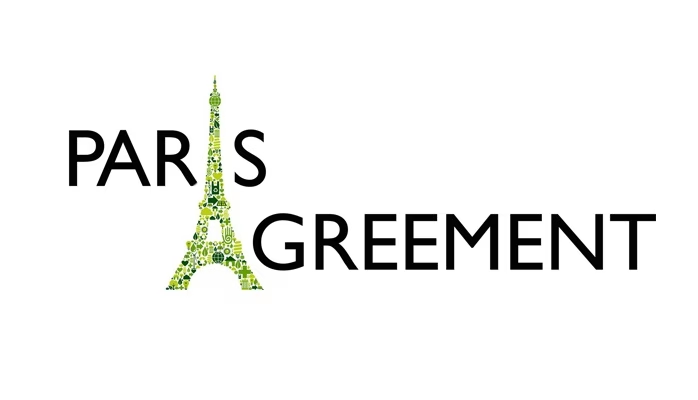Over the past decades, climate change has emerged as one of the greatest global challenges, creating an urgent need for sustainable solutions. Vietnam, a country highly impacted by natural disasters and extreme weather changes, has made significant strides in building and implementing carbon market policies. Vietnam’s story in carbon markets intertwines international agreements and domestic responses to address global climate challenges.

Beginning with the UNFCCC (1994)
In 1994, Vietnam officially joined the United Nations Framework Convention on Climate Change (UNFCCC). This marked the first milestone in establishing the foundation for the country’s emissions reduction commitments. The convention did not impose specific emission reduction requirements on developing countries but highlighted the importance of maintaining emissions at a controllable level.
During this period, Vietnam primarily focused on building awareness of climate change. Domestic policies were still in the initial stages, but the UNFCCC sparked the need to develop emissions measurement and environmental monitoring systems.
Participating in the Kyoto Protocol and the Clean Development Mechanism (2005-2012)
In 2005, the Kyoto Protocol officially came into effect, and Vietnam was among the developing countries participating in this mechanism. The Kyoto Protocol marked an important milestone as it was the first time countries committed to specific greenhouse gas emission reductions.
A highlight of this period was the Clean Development Mechanism (CDM)—an initiative allowing developed countries to invest in emission reduction projects in developing nations and receive carbon credits (CERs) from these projects. Vietnam actively promoted CDM projects, from waste treatment plants to renewable energy projects like hydropower and wind power.
This period also saw the Vietnamese government issuing policies to encourage the development of clean energy and energy efficiency in line with CDM criteria. CDM projects not only generated revenue from carbon credit sales but also facilitated technology transfer and opened up potential for clean energy development in Vietnam.
The Paris Agreement and NDC Commitments (2015-2016)
The Paris Agreement, adopted in 2015, marked a turning point as countries committed to keeping the global temperature rise below 2°C above pre-industrial levels, with efforts to limit it to 1.5°C. The Paris Agreement required all nations, whether developed or developing, to contribute to greenhouse gas emission reductions through nationally determined contributions (NDCs).
In 2016, Vietnam officially submitted its Nationally Determined Contribution (NDC), with a target of reducing emissions by 8% by 2030 compared to a business-as-usual scenario, potentially increasing to 25% with international support. To meet this commitment, Vietnam accelerated the development of domestic policies, including emission inventory measures, encouraging industries to adopt clean technologies, and promoting renewable energy.
This period also saw reforms in the Environmental Protection Law, paving the way for the domestic carbon market’s development and encouraging businesses to adopt emission-reducing technologies.
The 2020 Environmental Protection Law and Decree 06/2022
In 2020, Vietnam passed a new Environmental Protection Law, laying the groundwork for establishing a domestic carbon market for the first time. This demonstrated Vietnam’s proactive steps beyond international commitments to build a legal framework for domestic carbon credit trading. The law included provisions on measurement, reporting, and verification (MRV) of greenhouse gas emissions—key elements to ensure transparency and reliability in the carbon market.
In 2022, Decree 06/2022/ND-CP was issued to implement the Environmental Protection Law, detailing the measurement and reporting of emissions and outlining the development of the carbon credit market. This decree mandated participation from high-emission sectors in the carbon trading system, with the government controlling emissions by allocating quotas.
The National Strategy on Climate Change and Net-Zero Commitment (2022-2050)
In 2022, Vietnam launched its National Strategy on Climate Change for the period to 2050, targeting net-zero emissions by 2050. This ambitious goal underscored Vietnam’s commitment to align with the global community in combating climate change. To achieve net-zero, Vietnam outlined plans for significant development in non-emitting industries, encouraged enterprises to engage in the carbon market, and established stringent emission control systems.
The strategy also emphasized international cooperation, emission reduction technology development, and promoting sustainable fields such as smart agriculture, renewable energy, and carbon capture technology. Additionally, the government began pilot projects to develop a domestic carbon credit trading system.
Carbon Market Trials and Future Prospects
Vietnam is currently conducting pilot projects for the domestic carbon market, allowing certain industries to trial carbon credit trading. These projects play a crucial role in evaluating effectiveness, exploring technical solutions, and refining the legal framework for Vietnam’s carbon market.
Despite facing challenges such as funding, technological infrastructure, and public awareness, Vietnam is poised to become a carbon credit trading hub in Southeast Asia if it successfully develops a transparent and sustainable trading system.
Appendix: List of Carbon Market Policies Currently in Effect in Vietnam
- Environmental Protection Law 2020: Provides the foundation for the development of the domestic carbon market, stipulating emission reductions and carbon credit trading mechanisms.
- Decree 06/2022/ND-CP: Details greenhouse gas emission reduction and ozone layer protection, including MRV system guidelines for the carbon market.
- Decision 01/2022/QD-TTg: Issues a list of sectors and facilities required to conduct greenhouse gas inventories, laying the groundwork for emission quota allocation and carbon market participation.
- National Strategy on Climate Change to 2050: Aims for net-zero emissions by 2050, promoting carbon market development and emission reduction mechanisms.
- Proposal for Developing Vietnam’s Carbon Market: Outlines the roadmap for carbon market development, including a pilot carbon credit trading platform by 2025 and official operation by 2028.
- Circular 17/2022/TT-BTNMT: Provides technical guidance on greenhouse gas measurement, reporting, and verification for facilities listed in the inventory, supporting carbon market participation.
- Decision 01/2023/QD-TTg: Approves the plan for greenhouse gas emission quota allocation for industries, preparing for carbon market implementation.






